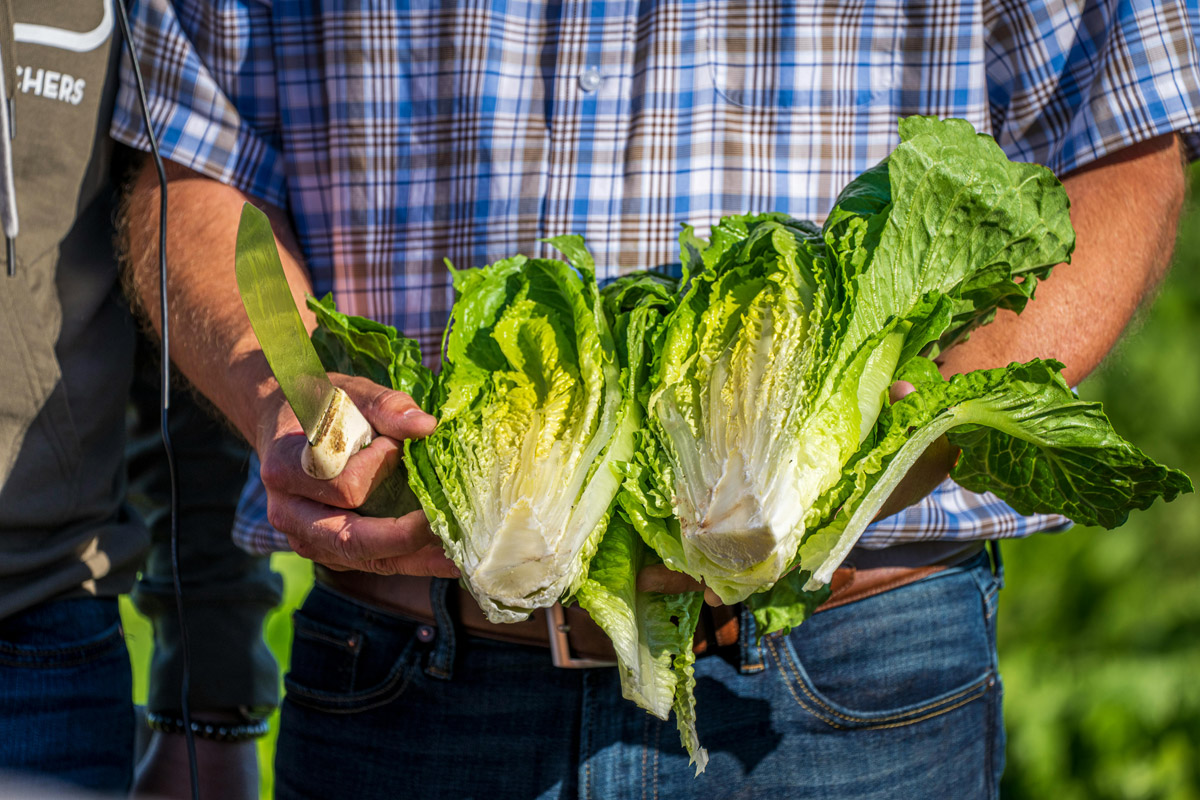
In our coverage of the FDA (reportedly) planning on ending food safety inspections, I referenced an E. coli outbreak last October that affected the current president’s favorite fine dining establishment, McDonald’s. (Bet you an order of super-sized fries he heard “golden arches” and thought, “Gold! That’s my brand! Me likey bigly!”) The bacteria was traced to a batch of onions that came from Taylor Farms. The FDA investigated, providing regular updates to the public, and Taylor Farms issued their own recall. Contrast that to another E. coli outbreak that started last November: it spread to 15 states, made 89 people aged four to 90 seriously ill, and resulted in (at least) one person dying. But unlike with the onions, this time the FDA didn’t even announce an investigation, which they quietly closed in February without sharing any info on the company or product contaminated. We only know it was linked to Taylor Farms again, this time in romaine lettuce, because the parents of a 10-year-old who got sick filed to get the FDA’s unredacted report. Gee, I wonder who/what is behind the change in approach…
In lawsuits filed by families affected by the outbreak, the California-based bagged salad giant Taylor Farms was named as the source of the E. coli-tainted lettuce, but the FDA under Donald Trump and Health and Human Services (HHS) secretary Robert F. Kennedy, Jr., refuse to do the same.
In statements to the outlet, Taylor Farms insisted that third-party investigations had cleared it of any responsibility. Just a few weeks before the lettuce-derived outbreak began, however, the same company voluntarily recalled yellow onions it had grown that were linked to a separate rash of E. coli infections that sickened more than 100 people and killed one.
As with Taylor Farms, the FDA has also issued some very mixed messaging about the November E. coli outbreak.
In an internal document obtained by NBC, the FDA appeared to pinpoint the farm that grew the lettuce and the brand that sold it, but those names, as well as other information, have been redacted. In a statement to the news outlet, a spokesperson said those names were not disclosed because it had already ended by the time the source of the outbreak was confirmed — but in a separate comment to Albany’s 13News, another FDA representative claimed that the lack of disclosure was to protect “trade secrets.”
Beyond the obfuscation and politicking, this outbreak — which involved a dangerous strain known as 0157:H7, which can cause organ damage, long-term illness, and even death — seems to really have freaked out the people tasked with handling it.
In Missouri, St. Louis County senior epidemiologist Amanda Brzozowski told NBC that as soon as the cases in the November outbreak began coming in, she knew it was no normal rash of foodborne illness. High schoolers who all lived in the same area of the county were the first infected, and food from a local catering company was ultimately identified as the likely origin. Ominously, the kids who got it became incredibly sick, incredibly fast.
From bloody diarrhea to severe stomach cramping to dehydration and vomiting, the illness the epidemiologist had on her hands was, as she put it, “really scary.”
“This type of situation we’ve never seen before,” Brzozowski said.
Using genetic sequencing technology and other health information about people infected, federal investigators determined that those who fell ill did so after eating romaine lettuce — and that the lettuce had come from a “sole processor.”
Yeah, and that “sole processor” was Taylor Farms, which we know thanks to Christopher and Amber George. They sought the unredacted report from the FDA, and based on that are suing Taylor Farms, one of nine lawsuits filed so far in relation to this outbreak. The George family had to mark son Colton’s 10th birthday while he was in the hospital receiving round-the-clock dialysis, to combat the hemolytic uremic syndrome he developed from the E. coli he’d unwittingly ingested. Though he’s doing much better now, Colton still has ongoing stomach pain and fatigue, while his parents have steep medical bills to contend with. I wish the George family, and all the people who’ve been affected, health and healing from this horrible situation.
As for the FDA’s current argument that they didn’t need to alert the public about romaine lettuce from Taylor Farms, A) that is quite literally their job, B) even if the entire outbreak had “already ended” (their work force has been gutted, but sure, take their word for it), even then people could have packages of the contaminated food product sitting in fridges/freezers, and C) again, IT IS THEIR JOB.
Photos credit: Mark Stebnicki and Kaboom pics on Pexels












Any idea why the public was not informed November through January? Case was closed in February but I would think there was time to inform the public before new administration took office. Am I missing something here?
This whole thing is concerning. There shouldn’t be E coli lettuce, anyway. Does that stem from lack of bathroom facilities at the farms? Honestly pooping in a bucket lined with a plastic bag wouldn’t be so bad compared to leaving human waste on cropland.
IIRC, a previous [Spinach?] E coli outbreak was linked to the contaminated runoff from a nearby industrial meat-processing plant. If Taylor Farms was located in an industrial food processing cluster, their E coli contamination could be linked in that manner.
Agreed. Trump didn’t take over, until January.
What on earth could be a ‘trade secret’ about the growing of lettuce???
I’m sure the cover up had nothing to do with Taylor’s owner (Bruce Taylor) being a huge trumper who has unsuccessfully run for office trying to unseat the current and former Democratic U.S. representative in this district.
Thank you for this info. I’m in California and there’s a lot of Taylor Farms produce on the shelves. Add your info to the e-Coli outbreak and I’ll be avoiding their produce like the plague.
y’all need to stop buying bagged/processed produce.
IIRC This is sold to restaurants and catering companies. Not sure it was sold through supermarkets.
A lot of grocery stores only sell certain produce pre-bagged. Not everyone has a farmers market or co-op available. Let’s not judge people for how they eat their vegetables. At least they’re eating them.